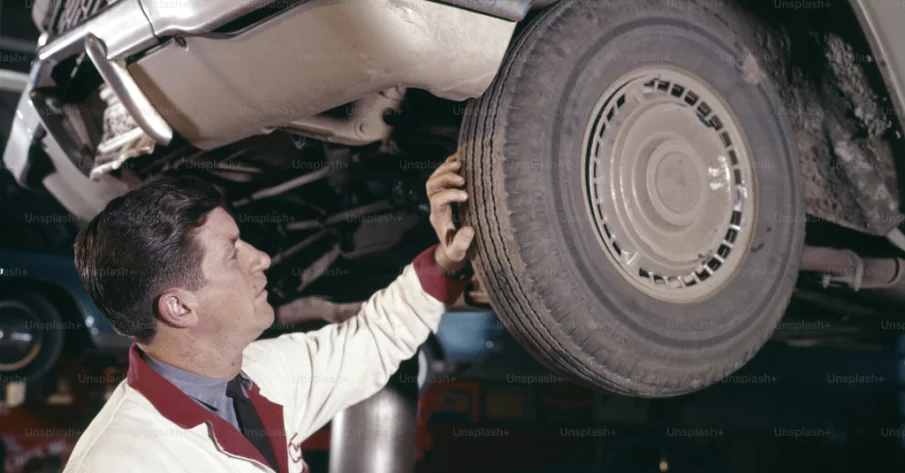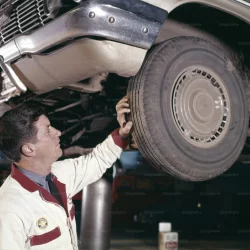Career Guide for Automobile Technicians

Becoming an automobile technician is a rewarding career path for those who have a passion for cars and enjoy hands-on work. This guide provides a comprehensive overview of what it takes to become an automobile technician, including the necessary skills, education, certification, and career prospects.
Understanding the Role of an Automobile Technician
Automobile technicians are skilled professionals who diagnose, repair, and maintain vehicles. They work on various types of vehicles, including cars, trucks, and sometimes even motorcycles. Their tasks can range from routine maintenance, such as oil changes and tire rotations, to more complex repairs involving the engine or transmission.
Key Responsibilities
Automobile technicians perform a wide range of duties, including:
- Diagnosing Problems: Using diagnostic tools and software to identify vehicle issues.
- Performing Repairs: Fixing or replacing faulty parts, such as brakes, engines, and transmissions.
- Routine Maintenance: Conducting regular check-ups and maintenance tasks like oil changes, tire rotations, and brake inspections.
- Customer Service: Communicating with customers about their vehicle issues and explaining the repairs needed.
- Staying Updated: Keeping up with the latest automotive technologies and repair techniques.
Essential Skills for Automobile Technicians
To succeed as an automobile technician, certain skills are essential. These include both technical abilities and soft skills.
Technical Skills
- Mechanical Aptitude: Understanding how vehicle systems work and being able to disassemble and reassemble parts.
- Diagnostic Skills: Proficiency with diagnostic tools and software to accurately identify vehicle problems.
- Problem-Solving: The ability to troubleshoot and find effective solutions to complex mechanical issues.
- Technical Knowledge: Familiarity with various vehicle makes and models, and staying updated with new automotive technologies.
Soft Skills
- Attention to Detail: Ensuring that repairs are done correctly and thoroughly.
- Customer Service: Communicating effectively with customers to explain repairs and build trust.
- Time Management: Managing time efficiently to complete repairs within deadlines.
- Physical Stamina: The ability to perform physically demanding tasks, such as lifting heavy parts and working in awkward positions.
Educational Pathways
Becoming an automobile technician typically requires a combination of education, training, and hands-on experience.
High School Education
A high school diploma or equivalent is usually the minimum educational requirement. High school courses in mathematics, physics, and automotive repair can provide a strong foundation.
Vocational Training
Many aspiring technicians attend vocational schools or community colleges that offer automotive technology programs. These programs typically last one to two years and provide comprehensive training in vehicle repair and maintenance.
On-the-Job Training
Hands-on experience is crucial in this field. Many technicians start as apprentices or trainees, working under the supervision of experienced technicians. This on-the-job training helps them gain practical skills and knowledge.
Certification and Licensing
While certification is not always mandatory, it can significantly enhance job prospects and credibility.
ASE Certification
The National Institute for Automotive Service Excellence (ASE) offers certification in various automotive specialties. To become ASE certified, technicians must pass exams and have relevant work experience. ASE certification is highly respected in the industry and demonstrates a technician's expertise.
State Licensing
Some states require automobile technicians to be licensed. Licensing requirements vary by state but generally include passing an exam and meeting certain educational or experience criteria.
Career Advancement
Automobile technicians can advance their careers through further education, specialization, and gaining experience.
Specialization
Technicians can specialize in specific areas, such as engine repair, transmission work, or automotive electronics. Specialization often requires additional training and certification but can lead to higher-paying jobs and more job opportunities.
Continuing Education
Keeping up with the latest automotive technologies and repair techniques is essential. Technicians can take continuing education courses and attend workshops or seminars to stay updated.
Management Roles
With experience, technicians can move into supervisory or management positions, such as shop foreman, service manager, or even opening their own repair shop.
Job Market and Salary
The demand for skilled automobile technicians remains strong due to the constant need for vehicle maintenance and repair.
Job Outlook
According to the U.S. Bureau of Labor Statistics, employment of automotive service technicians and mechanics is projected to grow at a steady pace. Advances in automotive technology and the increasing complexity of vehicles ensure that skilled technicians will continue to be in demand.
Salary Expectations
Salaries for automobile technicians vary based on factors such as experience, location, and specialization. According to the U.S. Bureau of Labor Statistics, the median annual wage for automotive service technicians and mechanics was $44,050 as of May 2020. Experienced technicians or those with specialized skills can earn significantly higher wages.
Conclusion
A career as an automobile technician offers a blend of hands-on work, problem-solving, and continuous learning. With the right education, training, and certifications, you can build a successful and fulfilling career in this dynamic field. Whether you’re just starting out or looking to advance your skills, the automotive industry offers numerous opportunities for growth and development.
More to Read:
Previous Posts:





